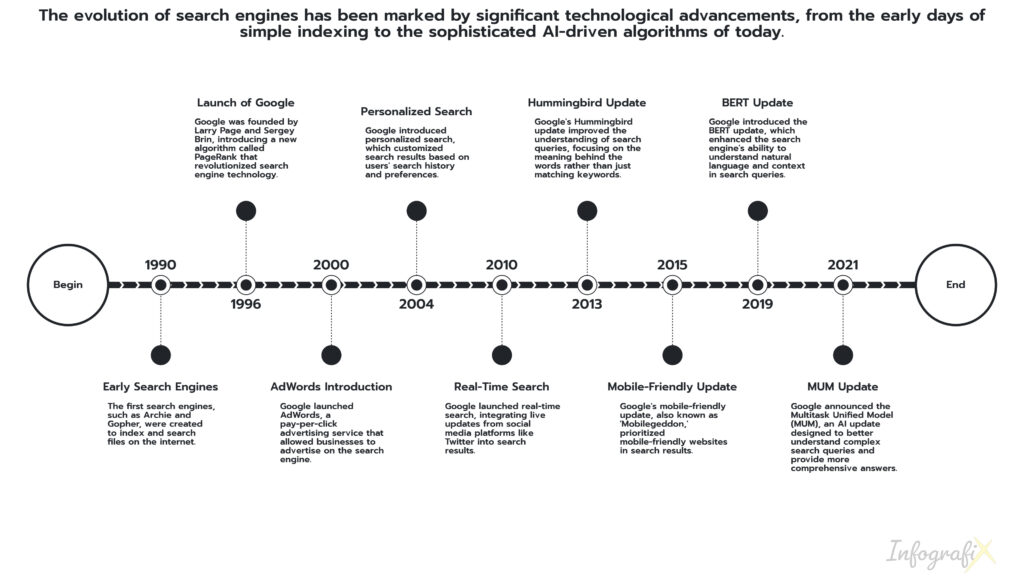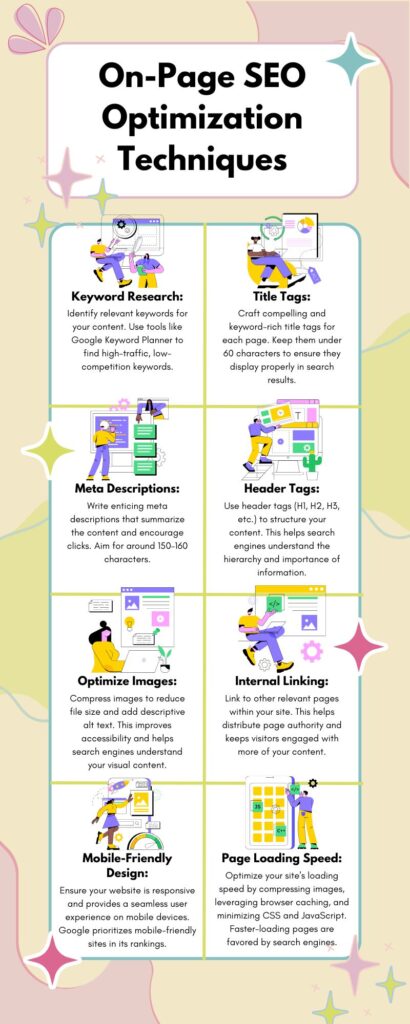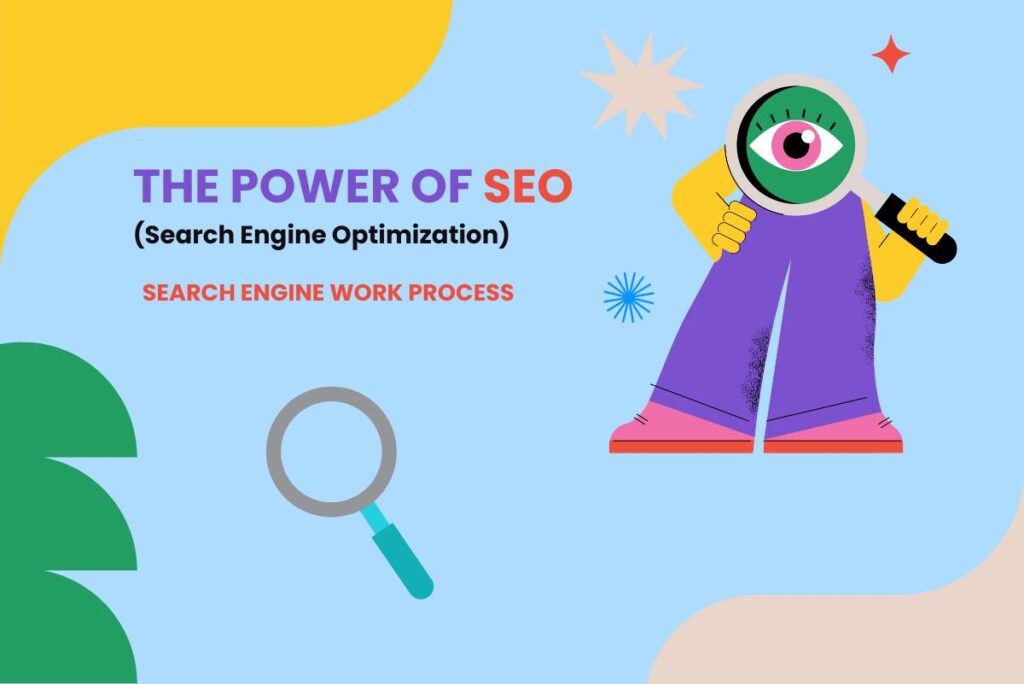Search engines are vital tools that organize and provide access to vast volumes of information on the internet. By creating an interface where users can input specific criteria, search engines streamline the process of finding relevant information, products, or services. This search process, guided by what we call a “search query,” allows users to filter through billions of items online to locate those that match their intent.
How Search Engines Function

At their core, search engines are designed to match user input with relevant content. When users input a query, they are essentially communicating a need for information. The search engine then applies complex algorithms to identify, rank, and present results that best match this query. In the case of text search engines, the search query is usually a collection of keywords or phrases that define the user’s intention. These keywords could refer to topics, concepts, products, or services that are spread across numerous documents and pages online.
Step-by-Step Breakdown of Search Engine Operations
- Crawling: Search engines use bots (also known as crawlers or spiders) to explore the internet and identify new content. These bots crawl web pages, indexing them based on the information they contain and their connections to other pages.
- Indexing: Once a search engine’s bots locate a page, they assess and catalog its content. This content is then stored in the search engine’s index, a massive database that houses every page the engine has deemed useful or informative. The index is structured to allow quick access based on various query criteria.
- Ranking and Retrieval: When a user submits a search query, the search engine references its index to retrieve the most relevant pages. These pages are then ranked based on several factors, including keyword relevance, page authority, and content freshness. This ranking process ensures that users receive the most relevant and authoritative content first.

Types of Search Queries
Understanding how search queries work involves knowing the various types of queries users make:
- Navigational Queries: These are queries where the user is looking for a specific website or page. For example, someone might type “Facebook login” or “OpenAI homepage” to find a particular site directly.
- Informational Queries: In this case, users seek information on a general topic without a specific website in mind. Examples include “how search engines work” or “benefits of green tea.”
- Transactional Queries: These are queries where the user intends to complete a transaction, such as “buy wireless headphones” or “cheap hotels in Paris.” Search engines recognize these as high-commercial-intent queries and often display shopping-related content.
Key Elements of Effective Search Engine Queries
For users to get the most out of their searches, they often rely on certain components within their queries:
- Keywords: The basic units of any search query, keywords represent the essential topics or concepts the user wants to explore. For example, in a search for “best Italian restaurants near me,” keywords like “Italian restaurants” and “near me” help the search engine locate relevant results.
- Modifiers: These are additional words that refine or narrow the search query. Using words like “best,” “cheap,” “2024,” or other descriptors helps to tailor the search, providing results that more closely match the user’s intent.
- Operators: Advanced users may employ operators (e.g., AND, OR, NOT) to better control the search results. These operators help specify relationships between terms and exclude or include specific types of results.
The Importance of Search Engine Optimization (SEO)
Since search engines use algorithms to rank results, website owners and content creators use SEO to improve their visibility in search engine results pages (SERPs). SEO is the process of optimizing content to ensure it meets the criteria search engines use to determine relevance, authority, and usefulness.
Key SEO Components
- On-Page SEO: This refers to optimizing individual web pages with targeted keywords, quality content, headers, images, and links to improve rankings.
- Off-Page SEO: This focuses on building backlinks from other websites, which helps boost the authority and trustworthiness of a website.
- Technical SEO: This involves improving aspects of a website’s structure and performance, including load speed, mobile-friendliness, and secure connections (HTTPS).
The Future of Search Engines
With advancements in AI, machine learning, and natural language processing (NLP), search engines are becoming more intuitive and responsive to user intent. The trend toward semantic search, for instance, is enabling search engines to understand the meaning behind words and phrases rather than just matching keywords. This allows for more accurate and relevant results, especially for complex queries.
Evolution of Search Engine Features and Technology
Over time, search engines have significantly evolved, adapting new technologies to enhance accuracy, speed, and user experience. Early search engines relied heavily on keyword matching, meaning they only matched words in the search query with exact words found in web content. However, with advancements in technology, search engines today have moved beyond simple keyword matching to understand user intent, context, and even user behavior, delivering more refined and relevant results.
Semantic Search: Understanding Intent and Context
Semantic search is one of the pivotal advancements in search engine technology. Unlike traditional keyword searches, semantic search aims to understand the user’s intent and the contextual meaning behind the words in a search query. This approach ensures that results are not only relevant to the specific terms used but also to the user’s underlying purpose.
For example, when someone searches “best hotels for families in New York,” a semantic search engine will look beyond just the words “hotels” and “New York.” It will recognize that the search is about family-friendly accommodations, possibly prioritizing results with amenities suitable for children, such as pools, kid’s clubs, or special packages.
Voice Search: Changing the Way People Search
With the rise of voice-activated devices like smartphones, smart speakers, and virtual assistants, voice search has become increasingly popular. Voice search queries differ significantly from traditional text-based queries—they tend to be longer, more conversational, and often include question words like “how,” “what,” and “where.” Search engines have adapted to accommodate these differences, refining their algorithms to interpret more natural, conversational language.
For instance, a text-based search might be “weather Paris,” whereas a voice search might sound more like, “What’s the weather like in Paris today?” Adapting to voice search has required search engines to enhance their natural language processing (NLP) capabilities, making them more efficient at interpreting spoken language.
Artificial Intelligence and Machine Learning in Search Engines
Artificial intelligence (AI) and machine learning (ML) play substantial roles in modern search engines, helping them deliver more personalized, accurate results by learning from user data and behavior patterns.
- Algorithm Improvements: AI-driven algorithms like Google’s BERT (Bidirectional Encoder Representations from Transformers) and MUM (Multitask Unified Model) are designed to understand the context of words in a sentence, which makes them more effective at answering complex questions. These models can interpret relationships between terms and understand nuanced meanings, leading to more precise results for the user.
- Personalization: Search engines today often personalize results based on a user’s search history, location, and preferences. If a user frequently searches for recipes, for example, the search engine may prioritize food-related content or offer tailored suggestions in the future.
- Image and Video Recognition: With AI, search engines have also improved their ability to analyze images and videos. Google Images and other visual search engines allow users to search by image, using AI to identify objects, landmarks, and even people within photos.
- Predictive Search: Predictive search uses machine learning to anticipate what users might want to search for before they finish typing. For instance, Google’s autocomplete feature provides suggestions as users type, helping them find information faster. Predictive search makes search engines not only quicker but also more intuitive.
Practical Tips for Effective Search Engine Use
Whether you’re a casual user or a researcher, knowing a few tips can significantly improve the quality of your search results. Here’s how to make the most of search engines:
- Use Quotes for Exact Matches: Placing keywords or phrases in quotation marks tells the search engine to find exact matches. For instance, searching for “global warming impacts” will only show results with that exact phrase, helping narrow down specific information.
- Leverage Advanced Search Operators: Operators such as AND, OR, and NOT can refine your search further. For example, “smartphones AND 5G” will find results with both keywords, while “smartphones NOT Apple” will exclude results about Apple smartphones.
- Search by File Type: If you need specific file formats, you can use “filetype:” to find them. Searching “climate change filetype
” will return PDF documents specifically about climate change. - Use the Site Operator for Targeted Searches: If you want information from a specific website, use the “site:” operator. For instance, “site
.org artificial intelligence” limits the results to Wikipedia pages on artificial intelligence. - Apply Time Filters: Many search engines allow users to filter results by date, which is useful for finding the latest information or research on a topic.
Practical Tips for Content Creators Optimizing for Search Engines
If you’re a content creator, here’s how to optimize your content to increase visibility on search engines:
- Use Relevant Keywords: Incorporate keywords that accurately reflect the content’s main topic. Conduct keyword research to find terms users commonly search for and integrate them naturally into your content.
- Write Compelling Meta Titles and Descriptions: Meta titles and descriptions are what users see on search engine results pages. A clear, concise, and compelling meta description can increase click-through rates (CTR) and improve ranking.
- Optimize for Mobile: With most searches now conducted on mobile devices, ensure that your website is mobile-friendly. Google uses mobile-first indexing, which means it primarily uses the mobile version of a site for ranking and indexing.
- Produce High-Quality Content: Search engines prioritize content that is informative, well-written, and valuable to users. Focus on creating content that answers questions, provides insights, or solves problems effectively.
- Use Internal and External Links: Linking to other reputable pages (external links) and within your own site (internal links) can improve your website’s authority and usability. It also helps search engines understand the structure and relevance of your site’s content.
- Implement Structured Data (Schema Markup): Structured data provides additional information about a webpage’s content to search engines, enhancing the appearance of your results. This can include elements like ratings, prices, and availability for products, making your content more informative on SERPs.
Challenges Facing Modern Search Engines
Despite their advancements, search engines still face challenges:
- Content Quality and Misinformation: As anyone can publish content, search engines must constantly filter low-quality or misleading information, which can be challenging. They rely on algorithms and manual reviews to weed out untrustworthy content.
- Privacy Concerns: Personalization requires collecting data on users’ search habits, raising concerns about privacy. Balancing personalization with privacy protection is an ongoing challenge for search engines.
- Handling Multilingual and Regional Searches: With global users, search engines need to provide accurate results across multiple languages and regions. Ensuring culturally relevant, localized content is a constant hurdle.
- Combating Spam and Manipulative Practices: Some content creators use black-hat SEO techniques like keyword stuffing or link farming to manipulate search rankings. Search engines use algorithms to penalize these tactics, but staying ahead of such practices remains an ongoing effort.
The Future of Search Engines
As search engines continue to evolve, their capabilities will expand even further, driven by breakthroughs in AI, NLP, and user-focused innovations. Here are a few trends shaping the future:
- Conversational and AI-Powered Search Assistants: Future search engines may rely more on AI-powered assistants capable of complex dialogue, handling multi-part questions, and even conducting proactive searches based on past user behavior and preferences.
- Visual and Augmented Reality (AR) Search: Visual search engines are already popular, but future advancements may incorporate AR to overlay information about objects in real time. Users could point their phones at a landmark or product, receiving instant details through AR.
- Greater Focus on Ethics and Privacy: With increasing scrutiny on data privacy, future search engines may incorporate more robust privacy features, giving users greater control over what data they share and how it’s used.
- Voice and Emotion Recognition: Some research aims at enabling search engines to recognize emotions in voice or text, helping them better understand user intent. This could make interactions more personalized, offering suggestions based on mood or tone.
- Unified Multimodal Search: Future search engines may integrate text, voice, image, and even video input in one cohesive system. This would allow users to switch seamlessly between search modes, providing a richer, more versatile search experience.
Conclusion
Search engines are among the most advanced and essential tools in today’s digital landscape. By evolving to better understand human language, intent, and behavior, they provide users with access to precisely tailored information on demand. Whether for casual searches or in-depth research, search engines have become integral to how we navigate the world of information. For both users and content creators, staying informed about search engine capabilities and best practices for optimization can make the search experience faster, more productive, and ultimately more rewarding.
FAQ on Search Engines
Q1: What is a search engine query?

A search engine query is a request for information entered into a search engine. It usually consists of keywords or phrases that represent the user’s intent or the information they wish to find.
Q2: How does a search engine decide which results to show?

Search engines rely on algorithms that assess multiple elements, including the relevance of keywords, the quality of the page, and metrics related to user interaction. These algorithms rank results to provide the most relevant content based on the user’s query.
Q3: What is SEO, and why is it important for search engines?

SEO, or search engine optimization, is the practice of making a website more accessible and relevant to search engines. By optimizing for SEO, website owners improve their chances of ranking highly in search results, which can lead to increased visibility and traffic.
Q4: Can I use special characters or phrases to improve my search queries?

Yes, most search engines allow users to use operators like AND, OR, and NOT to refine their search. For example, a search for “digital marketing NOT SEO” will exclude SEO-related pages from the results.
Q5: Are there different types of search engines?

Yes, there are several types of search engines, including general-purpose ones like Google and Bing, vertical search engines (e.g., Amazon for products or YouTube for videos), and specialized engines for scientific or academic research.
Q6: What is a voice search, and how does it differ from text search?

Voice search enables users to verbally state their queries rather than typing them.
It relies heavily on natural language processing, and the queries tend to be longer and more conversational than traditional text-based searches.
Q7: How are search engines improving with AI?

AI enables search engines to better understand context, user intent, and semantics, making it easier to deliver accurate and personalized results. AI-driven features like Google’s BERT and MUM enhance the ability to interpret complex queries and understand nuances in language.
Q8: What are some tips for creating effective search queries?

Use specific keywords, apply modifiers (e.g., “best,” “near me”), use quotation marks for exact matches, and try using operators to include or exclude terms as needed.
Q9: How does user behavior impact search engine rankings?

Search engines consider user engagement metrics, like click-through rates and time on page, to gauge the relevance and quality of a page. Pages with higher user engagement may receive better rankings over time.
Q10: Will search engines ever replace human researchers?

While search engines are incredibly advanced, they may not fully replace human researchers. They can quickly provide vast amounts of data, but interpreting complex research topics or evaluating nuanced information still benefits from human expertise.
In summary, search engines continue to be indispensable tools for navigating information, helping users fulfill their informational needs quickly and effectively. By understanding how to use search engines and optimize content for them, users and website owners alike can better harness the potential of these powerful tools.
Certainly! Here’s more in-depth information on search engines, including their evolving features, the role of AI in shaping them, and practical tips for both users and content creators to navigate and optimize search effectively.

